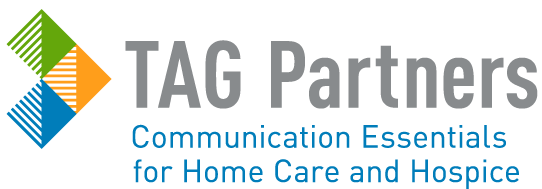There are an estimated 37 million Americans living with some degree of chronic kidney disease (CKD), and roughly 700,000 of them are on dialysis or living with a kidney transplant. CKD is more common in people over the age of 65. With people living longer and the senior population escalating, the demand for treatment will likely increase. To keep pace with demand, more research and development resources are going towards home dialysis equipment and supplies. This practice is bringing home dialysis into the mainstream with home health as a growing participant in support services.
If your home health agency does not currently participate in dialysis support you may want to consider expanding into this growing area of service, especially if your agency offers a comprehensive telehealth program. As of February 2018, two-thirds of monthly nephrologist visits can occur via telehealth, paving the way for more accessible home dialysis. As the number of home dialysis patients rises the more need there will be for home health support.
Home dialysis is as cost-efficient as receiving dialysis in a clinic. Medicare and most private insurance plans provide coverage of dialysis for qualified patients*.
Medicare Part A Pays for:
Inpatient dialysis
Medicare Part B Pays for:
Outpatient dialysis (At dialysis clinic)
Home dialysis training (for both patient and their care partner)
Home dialysis equipment and supplies
Home dialysis support services (Home dialysis training nurse, equipment emergencies, etc.)
Some hone dialysis medications (Heparin, Epogen, etc.)
Outpatient doctor visits
Other required services and supplies (lab tests, dietitian, social worker assistance at the dialysis center.)
Receiving dialysis at home is not limited. Both peritoneal dialysis and hemodialysis can be performed at home with proper patient and care partner training**.
Peritoneal dialysis (PD) is a needle-free dialysis option that can be performed at home by using the lining of the abdomen to filter waste from the blood. The function of PD closely resembles natural kidney function which helps support remaining kidney function.
Home hemodialysis cleanses the blood by running it through a dialysis machine via the patient’s vascular access. Patients using home hemodialysis have the option of more frequent or longer treatments which may lead to better clinical results and quality of life.
Three types of home hemodialysis treatments:
Conventional: dialysis three times a week for three to four hours per session.
Short daily: dialysis five or six times a week for two to three hours per session.
Nocturnal: slow dialysis done at night for six to eight hours while sleeping.
Benefits of short daily and nocturnal home hemodialysis:
Better blood pressure control
Less medication required for bone disease prevention.
Decrease in neuropathy with less restless leg syndrome
Less discomfort during treatment
Shorter recovery times after treatments
Energy Conservation
Better Sleep
Reduced hospitalization
Better quality of life
Longer life expectancy
Better success rate for transplants
*In 1972, Medicare benefits were extended to cover the high cost of medical care for most people with end-stage renal disease (ESRD). People who need dialysis are eligible to sign up for Medicare once they begin treatment. Once enrolled, coverage is effective at the beginning of the fourth month of dialysis for in-center hemodialysis. For those choosing to begin their dialysis at home, Medicare coverage is effective on the first day of their treatment. https://www.medicareinteractive.org/get-answers/medicare-basics/medicare-eligibility-overview/medicare-eligibility-for-those-under-65
**Most home dialysis programs require extensive training for both patient and their care partner.
Resources:
https://www.kidney.org/atoz/content/homehemo
https://www.cdc.gov/kidneydisease/pdf/2019_National-Chronic-Kidney-Disease-Fact-Sheet.pdf
https://www.kidney.org/news/37-million-american-adults-now-estimated-to-have-chronic-kidney-disease
https://www.niddk.nih.gov/health-information/health-statistics/kidney-disease
https://blog.medicarerights.org/kidney-failure-medicare-know/





